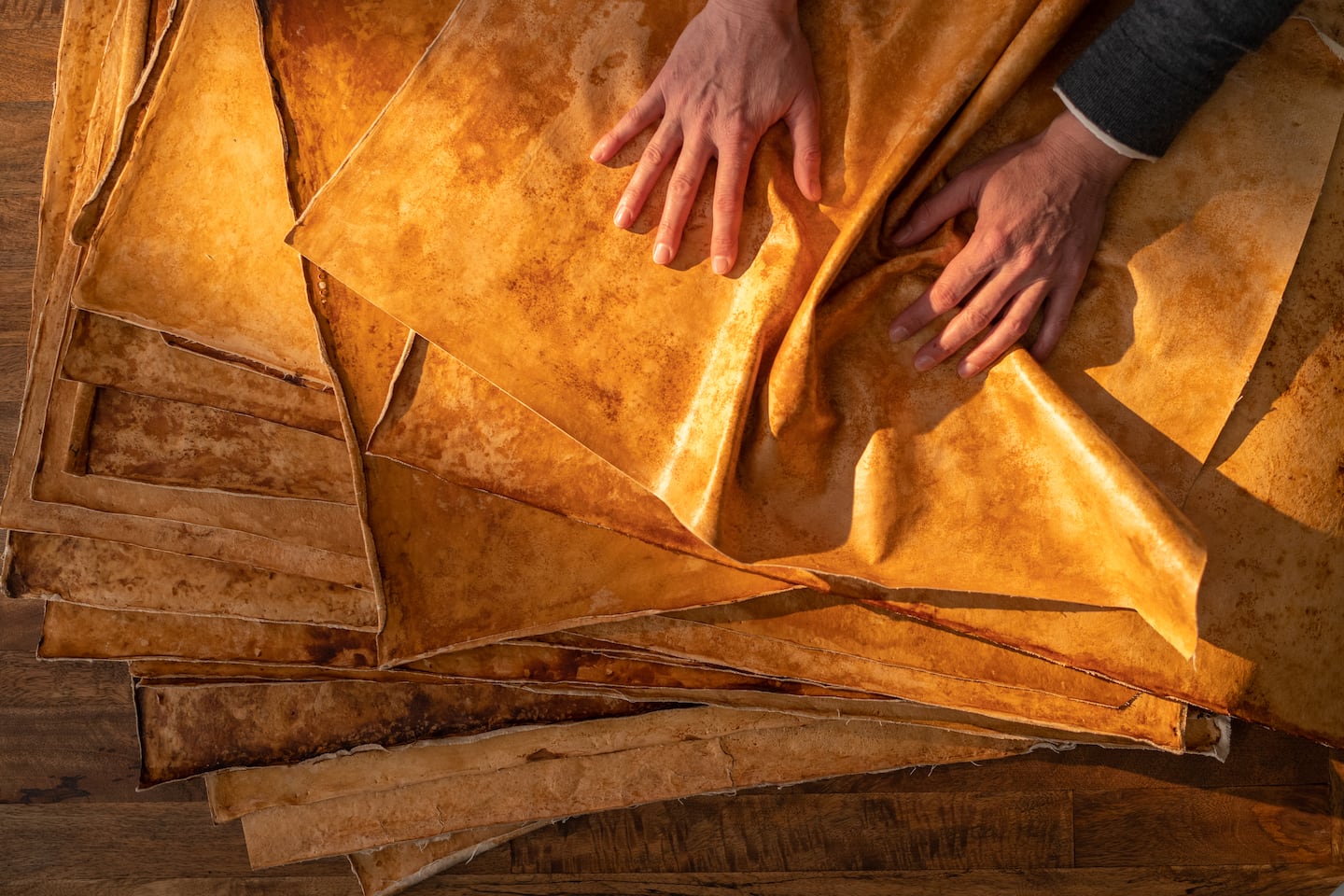
The Business of Fashion
Agenda-setting intelligence, analysis and advice for the global fashion community.

Agenda-setting intelligence, analysis and advice for the global fashion community.

After grabbing the fashion world’s attention with an Hermès partnership, mushroom-based leather producer MycoWorks is planning to scale up in 2022. On Thursday, the company said it had raised $125 million in a Series C funding round, geared to help finance a commercial-scale plant in South Carolina.
The financing was led by Prime Movers Lab, a company that specialises in investing in scientific breakthroughs. Other investors included SK Networks and Mirabaud Lifestyle Impact and Innovation Fund.
MycoWorks was founded in 2013 and has focused on developing a sophisticated alternative to leather from mycelium, the root structure of mushrooms. The result, a proprietary material called Reishi, has piqued the interest of surprise collaborator Hermès as well as several as-yet-unnamed brands. The company’s Series B funding round in 2020 raised $45 million from investors including celebrities Natalie Portman and John Legend, as well as an undisclosed number of “major fashion brands,” according to MycoWorks.
In addition to its new production facility, MycoWorks plans to use the capital from its latest funding round to expand its team and continue its research and development efforts. It’s a critical moment for the company, which is aiming to move from pilot stage to commercial production of its material. The Emeryville, Calif.-based company’s new facility is expected to be up and running in about a year and will be able to produce millions of square feet of material per year, the company said. It declined to disclose the exact capacity.
ADVERTISEMENT
The company is pitching the material as an innovative solution to some of fashion’s big sustainability challenges associated with leather manufacturing.
“This isn’t just about the material and the products, it’s also about the changes that we can bring to supply chains,” chief executive Matt Scullin said. “This funding is going to help us execute that vision.”
Mycelium has generated a lot of buzz in the fashion industry in recent years, as top-funded players in the space including MycoWorks, Bolt Threads and Ecovative aim to position their materials as low-impact alternatives to leather poised for commercial-scale production.
It’s attracted high-profile partnerships as brands experiment with plant-based fabrics with a lower environmental impact than conventional materials like leather. In addition to MycoWorks’ collaboration with Hermès, Bolt Threads is working with Kering, Stella McCartney, Adidas, Lululemon and, most recently, Ganni to develop prototypes with its “Mylo” mycelium leather, some of which are slated to become commercially available this year. In December last year, Ecovative launched a “cooperative” with fashion groups Bestseller and PVH to develop custom materials and products for commercial use.
Editor’s note: This article was revised on Jan. 13, 2022. An earlier version misstated the amount of money MycoWorks raised in its Series C funding round due to an error in the press release.
The leather-goods powerhouse is testing alternative materials in a break with tradition, reimagining its ‘Victoria’ travel bag in a lab-grown substitute.
In the third session of BoF’s annual gathering, Merlin Sheldrake, Ian Rogers, Wayne McGregor and others examined mycelium-based leather, virtual clothing, cyber threats and AI.
The fashion industry relies on an extractive business model. BoF assesses companies’ efforts to establish raw material supply chains with a positive impact on people and planet in the latest in a series of articles examining the findings of The BoF Sustainability Index.
The industry needs to ditch its reliance on fossil-fuel-based materials like polyester in order to meet climate targets, according to a new report from Textile Exchange.
Cotton linked to environmental and human rights abuses in Brazil is leaking into the supply chains of major fashion brands, a new investigation has found, prompting Zara-owner Inditex to send a scathing rebuke to the industry’s biggest sustainable cotton certifier.
Over the last few years, the run-up to Earth Day has become a marketing frenzy. But a crackdown on greenwashing may be changing the way brands approach their communications strategies.
This week, Sephora announced plans to double down on ‘green’ and ‘clean’ product labels, leaning into an increasingly risky marketing tactic even as a greenwashing crackdown has prompted other brands to pull back.